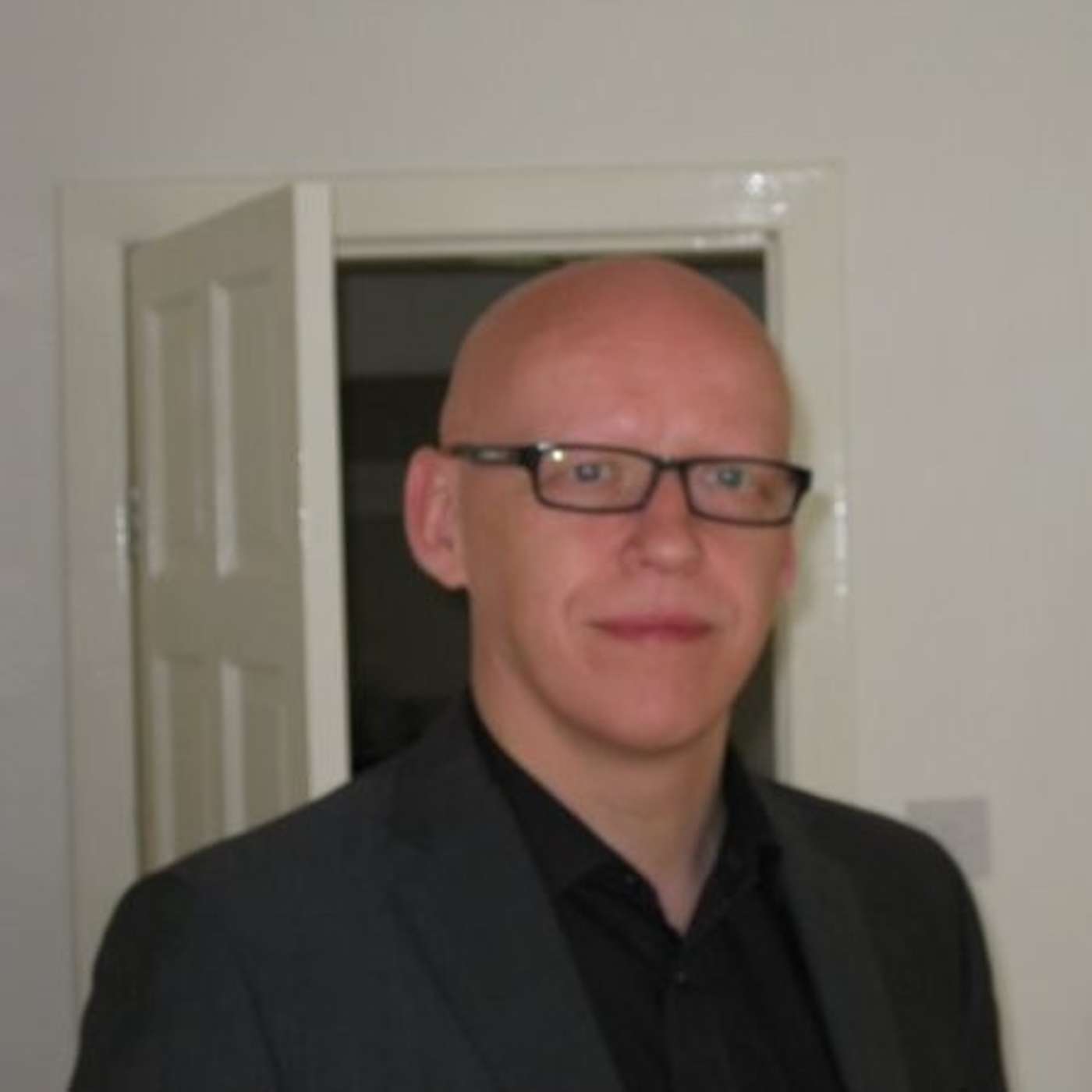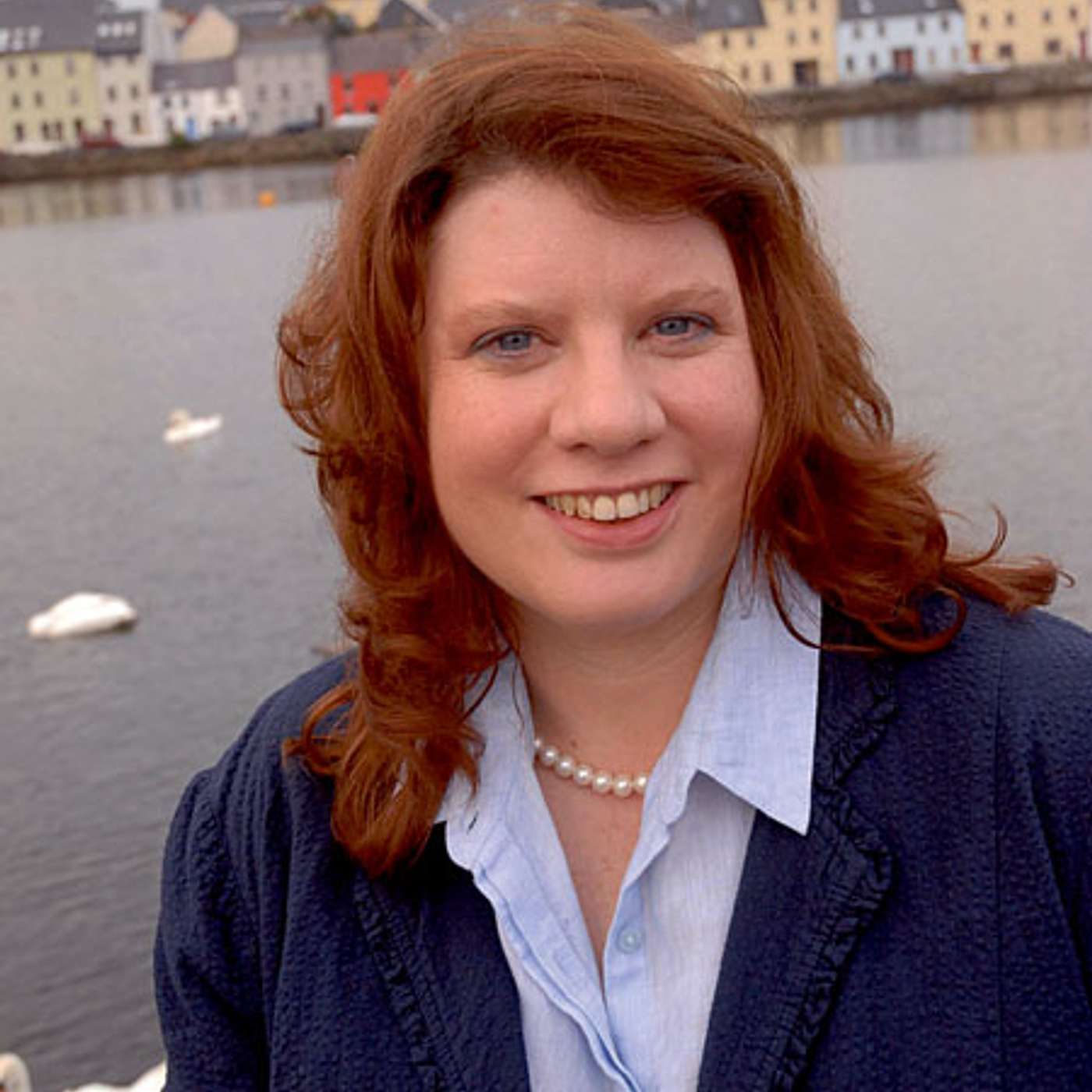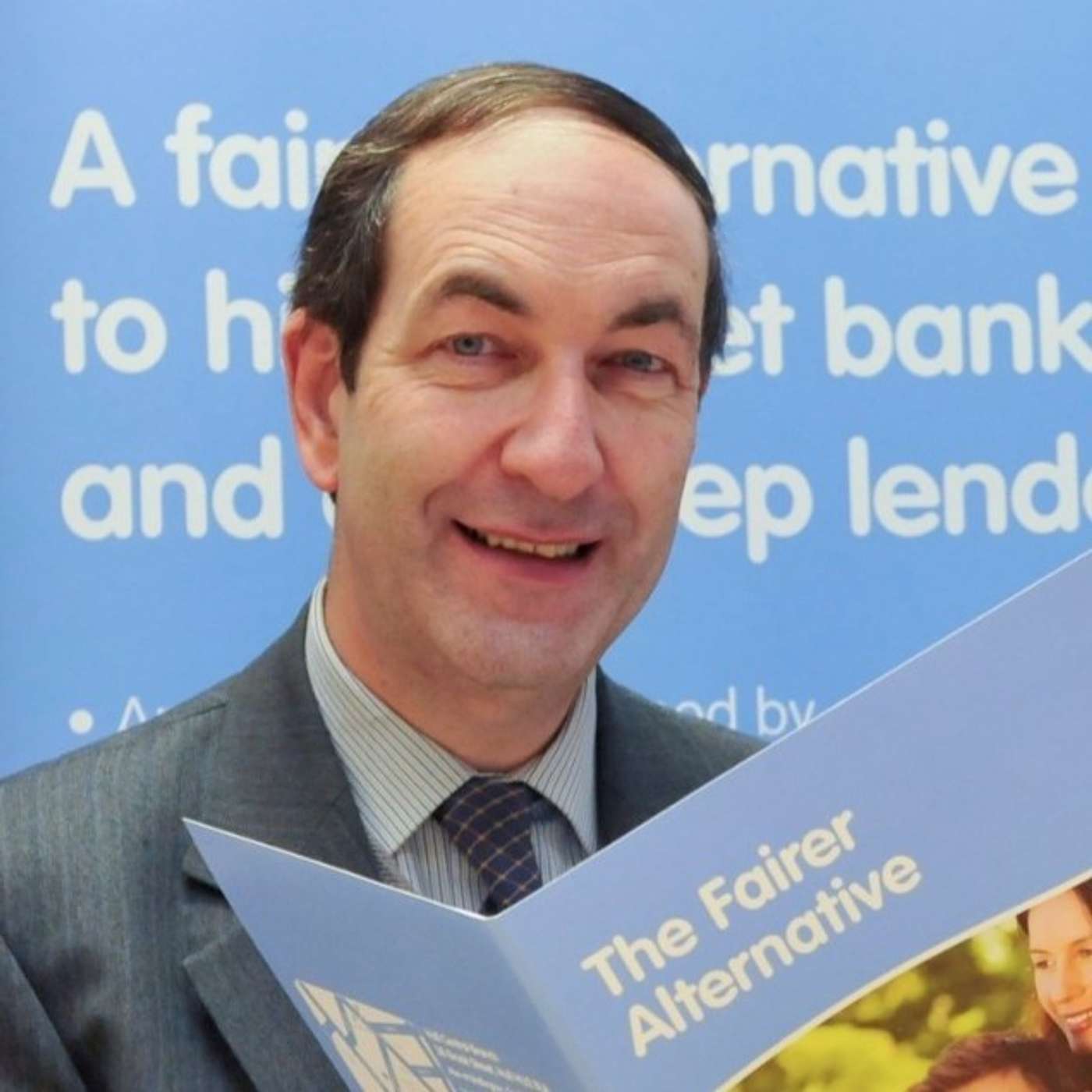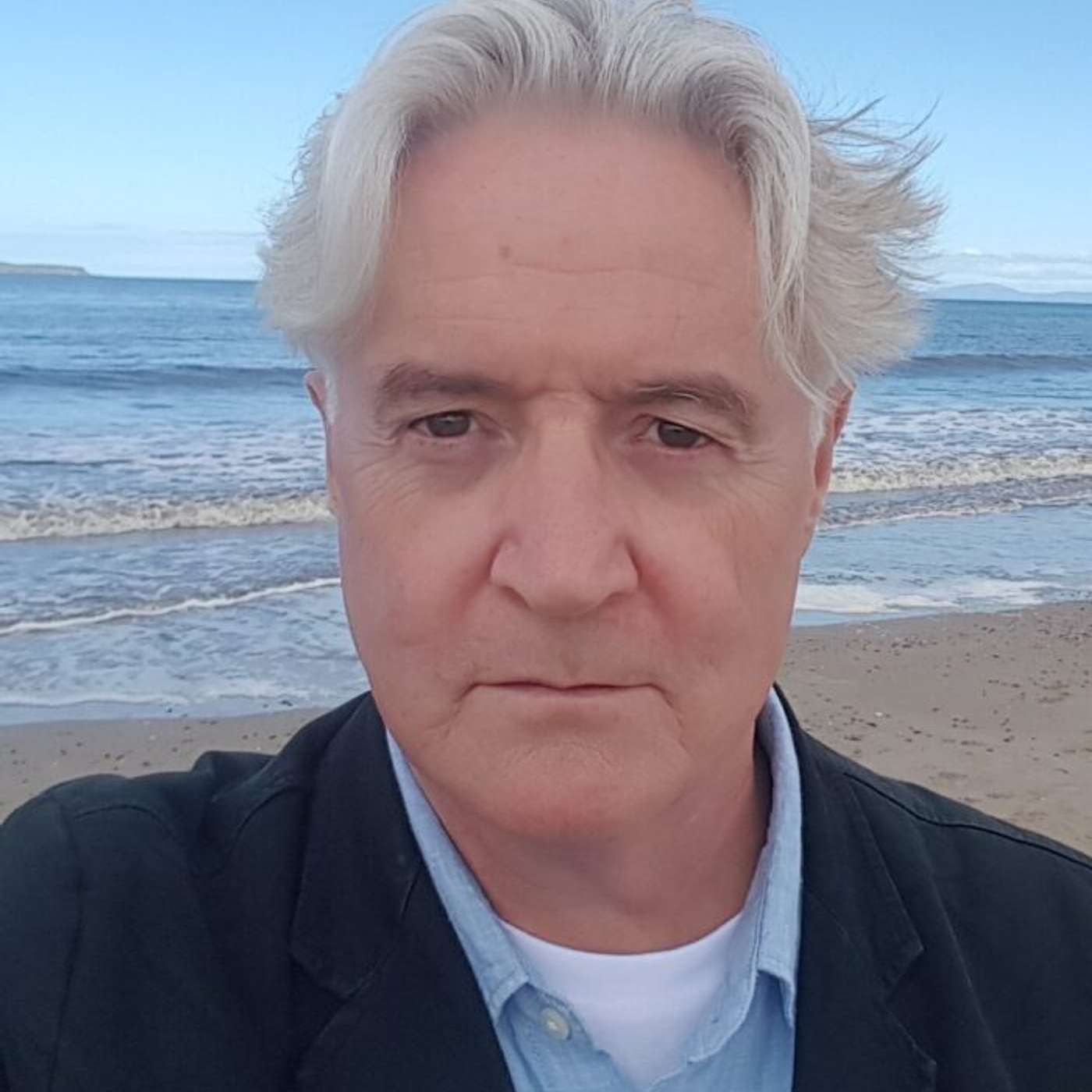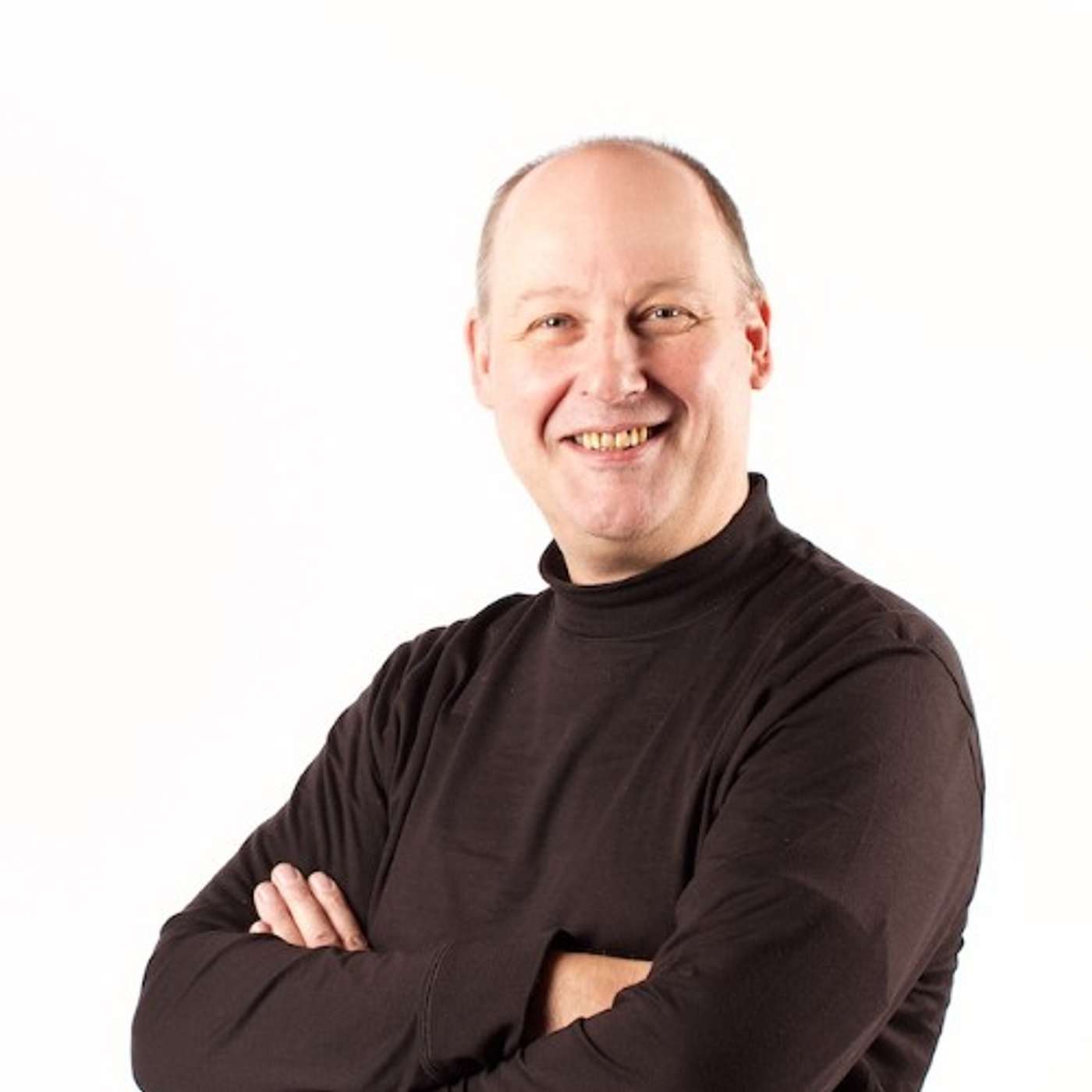Talking Credit Unions from Swoboda Research Centre
Talking Credit Unions delves into the latest trends shaping the financial landscape, equipping credit unions with the insights they need to stay ahead in a rapidly evolving industry. This podcast also tackles key issues facing the movement, fostering knowledge sharing and collaboration. Featuring a diverse line-up of credit union leaders, experts, researchers, and industry suppliers, it offers valuable perspectives to drive best practices, innovation, and success.
Talking Credit Unions is brought to you by the Swoboda Research Centre, which works to support positive change and transformation in the credit union movement. (https://swobodacentre.org/).
The podcast’s current producer and host, Anca Voinea, is a trained journalist with over 13 years of experience in the co-operative and credit union sectors. To suggest a podcast topic or for any other inquiries, contact her at anca.voinea@swobodacentre.org.
Talking Credit Unions from Swoboda Research Centre
Credit Unions are ethical...aren't they?
Can credit unions truly be the gold standard of ethical finance? Join our enlightening exchange with ethics-man Barry Clavin, as we scrutinize whether these institutions are walking the talk of their cooperative principles. We traverse the complex terrain of credit union ethics, addressing their genuine commitment to these values, and the potential benefits of adopting a unified ethical identity. Are there any lessons to be learnt from landmark policy of the Cooperative Bank. Barry sheds light on the strategic advantages such alignment could offer, setting credit unions apart in a financial industry often marred by scepticism.
Step into the world of credit unions, where Louise Shields, at Claddagh Credit Union, describes the emotional bonds woven with members and community-centric values. She paints a vivid contrast to traditional banking models.
We explore the manifestation of Hey Credit Unions ethical values through the experienced lens of John Smith, and how it reflects a dedication to a wide array of stakeholders.
Mick McAteer's insights on economic and social justice underscore the importance of authentically presenting ethical standards to attract a diverse member base.
Rob Harrison explains how the Ethical Consumer Association sees credit unions and emphasises the need to ensure the business is effective and efficient (to its customers or members) as well as considering an ethical dimension.
Talking Credit Unions is a regular podcast dedicated to informing credit union practitioners, leaders, and opinion formers on a variety of industry topics. The podcast is sponsored by the Swoboda Research Centre.
You're listening to talking credit unions with Chris Smith. These podcasts aim to communicate topics of interest from the world of credit unions. Over the years, the word ethics has been used with increasing frequency in the world of credit unions, and it got me thinking. After all, I see numerous references in credit union literature, websites and other media that credit unions are ethical. Well, are credit unions ethical? And if they are so, do they shout about it enough? Oh, and meanwhile, who decides on which aspects of ethics the credit union stands for? The credit union board of directors, the management or even the members?
Chris Smith:Earlier this year, the Swoboda Research Centre published a short paper called the Co-operative Bank: A case study of the cooperative difference.
Chris Smith:It was one of their reflection series. When the co-op bank launched its groundbreaking customer-led ethical policy back in 1992, it was the first time in British banking history a high street bank had declared that there would be some business activities that, whilst fully legal, it would prescribe as unethical and declined to provide with banking services. Inclined to provide with banking services, from oppressive states to environmental degradation, tobacco manufacture and testing on animals, the bank announced that business activities in these areas would no longer be welcome. And in some ways, this rationale for such a radical decision came about after a kind of long period of introspection and research by the bank into the meaning of cooperation for younger and more discerning customers. The Co-op Bank was faced with an ageing customer base and it took an honest look at itself and understanding of what value we describe to cooperation. And, in a nutshell, the bank heard from people that being cooperative, whilst highly valued in and of itself, would not mobilise enough individuals to move their banking. It was going to take something more tangible, relevant and differentiating.
Chris Smith:Now the author of this report is Barry Clavin. Barry is an ethics and sustainability expert, an advisor to businesses, governments, charities and cooperatives. An advisor to businesses, governments, charities and cooperatives, Barry led a world-class team in the delivery of a diverse range of award-winning sustainability and community programmes. Barry's also the creator and author of the Annual Ethical Consumer Report. I asked Barry should credit unions just copy what the Co-operative Bank did back in 1992?
Barry Clavin:Well, obviously the Co-op Bank was in that envious position in one sense, which is that it's a standalone bank, it's got its own customer base, it can engage with them how it wants, as opposed to where potentially a conversation with the credit union movements could go. Is that are they best served by representing credit union members as a collective or doing it across every credit union union independently? My view would be that asking that question as a starting point, which is where are we now? What are we strong for? What are we known for? Where do we want to get to as a consequence of that, is where you've really got to start from this point.
Chris Smith:You're saying about whether they do it individually, as credit unions, or whether they do it collectively? What's the downside of them doing it individually?
Barry Clavin:I suppose there'll be a couple of things. The first thing is obviously is practically it'd be very difficult, because you'd have hundreds of credit unions doing independent explorations with their member base to potentially come up with hundreds of different answers. A part of this, and part of what potentially this particular moment in time the credit unions may look for, is real high-level cut-through once more, which is with the regulators, with the media, with consumer commentators. Is that best served by and for customers, potential customers and members? What do credit unions stand for? And if they stand for 100 things, as you know, they stand for nothing and they stand for everything. But if we stand for two or three big things and we know we do because we've engaged with our membership bases across the piece I think the potential to have something which then potentially differentiates from others because it's underpinned by a member-led approach to these things, but then it expresses what are those values that our members care about across the piece, I think that would be quite powerful and could achieve some of that cut through, could achieve the ability to communicate it much more effectively and also, essentially, it should allow people on the other side, non-members.
Barry Clavin:If I want to be a member of the core movement by the credit unions, what does that mean? What does it look like? And how is it different from me just getting a bank account or getting a facility somewhere else? Because I can go to a bank and they will say they've got a community program, they've got an environmental program, they've got a diversity program. Why the credit unions? Why not the banks? So I think the learning that we were looking to share from that experience from the co-op bank, which was that that was the real sustainable difference that nobody followed. Nobody was brave enough to follow the co-op bank and say we will stand there, ask our customers what they want us to stand for, give them a vote for it, give them an opportunity to engage and go ahead with that hard to follow and if each credit union, for instance, or some credit unions started setting up their own ethical policies, we could end up going off what you've just said.
Chris Smith:We could end up with a situation where you've got ethical policies disagreeing with each other, whereas if there were five or six cornerstones that credit unions stand for and collectively bought into that differentiates them from competitors, that might be difficult for competitors to follow On that as well.
Barry Clavin:It would probably be cost prohibitive if everybody is going to do this process independently, rather than trying to find a model which suits everybody is not without its challenges, but would probably be more pragmatic and cost-effective. But also when you're talking the regulators and you need to be able to get to the nub of what you stand for, in those sort of conversations, which is look, you need, you regulators need to talk to us, because we stand for this, and not only do we stand for this. X million members behind us stand for these things as well.
Chris Smith:I thought it might be useful to ask some credit unions what they felt about the word ethics and whether ethics could be a differentiator between the credit union and its competitors. I started out by asking Louise Shields, who's the Chief Executive Officer of Claddagh Credit Union, which is a credit union on the west coast of Ireland, in Galway, and they have over 50,000 members and assets of over E210 million.
Louise Shields:I do think it potentially it has a huge unique selling point and I think we have the framework, if you like, is hard coded with the co-operative principles. They are in the rules. I think the banks are likely to be catching up with us and particularly with the introduction of the corporate sustainability reporting and within the Irish sector, definitely one of our main competitors on post is taking that space and taking it quite well if you look at their advertising and that. But it's ethics, it's like reputation. You're one step away from it destroying you and that is the difficulty of it. The other major difficulty of it is everybody's definition of ethics is different.
Louise Shields:What you think is ethical may be absolutely abhorrent to me. A lot of it depends on time and place. If we look back at the social norms of 100 years ago, we would be horrified in today's climate and similarly, social norms in different countries are very different. So I personally I would step away from the word ethics because I think it's too fluid and I think it would be easier to define particular behaviours and to hold ourselves account to those behaviors.
Chris Smith:In other words, there is a risk of being held hostage to the word ethics?
Louise Shields:Yeah, yeah.
Chris Smith:But you know you mentioned the banks there and I think that's a really good place to start in that. What do you think that you do as a credit union that the banks would find hard to replicate?
Louise Shields:I think it is that emotional connection and that goes back to the community, the sense of ownership. Literally, people were taken in by the hand when they made their first communion, by their granny to put their communion money in. And that emotion is all linked up with the credit union and you can see that anytime a change is made, particularly if a credit union is brave to change their name or to close an office, you very much have to take people on the journey and to acknowledge the history. But you can't be held to use your word as hostage to that either. The banks, they're a different animal. They're purely for profit and it makes life very simple. Profit is easy to measure, it's easy to see, everybody understands it From a credit union, particularly the co-operative principles. It is more intangible and it's trying to convince people that that has a value and they feel it.
Chris Smith:But it's very hard to measure and see. Established 25 years ago, the UK-based HEY Credit Union formerly Hull and East Yorkshire Credit Union has over 20,000 members and assets of over £14 million, and for many of those years John Smith was the HEY Credit Union's chief executive. He's now supporting the board of directors and leadership team as a part-time governance officer. I asked him about the charter the credit union had created with ethics in mind.
John Smith:We thought at one of our planning days board planning days we would set out a chart showing who our stakeholders were and what it is they expect from us and then how we aim to deliver it for them.
John Smith:So we came up with, obviously, our members as being a prime stakeholder and we thought, you know, they would obviously want reliable services and security of funds and they would want fair and competitive terms for the savings and loans and for us not to discriminate unfairly, also, you know, for a feeling of ownership for those. That that was important. For then we of course, had our employees and volunteers as an important stakeholder. What would they want? Well, it'd be things like fair rewards and good conditions of employment, job satisfaction I think that's a big one really for anybody who chooses to work at the credit union feeling that they're making a difference and they would want us to train them properly and develop their careers with them and security of employment. They want to be consulted about things that happen at the workplace. And also we thought you thought you know pride. They would want to go home feeling well, I'm really proud of what I've done at the credit union. You know, it's not just a job, it's, it's a calling. So that was that. And then we thought well, we serve our local communities.
John Smith:Obviously, our credit union serves a distinct geographical area across the Humber region, as well as some payroll partners that are further afield. So what would they want? Well, the local communities want us to support the local economy, maintain a local presence, have branches in the main towns if possible, and support local campaigns. If there's something that people are really precious about, we would want to be seen to be aligned with that and also, I think, be a good corporate citizen as well, so that you know we would try to do the right thing by the area, not have premises that are causing a problem for people in the street. And then we thought well, suppliers are a stakeholder as well, aren't they? So you know they want us to pay them promptly, support local businesses as much as possible. So when we're looking for someone to supply us with goods and services, if there's a local supplier that we can use within our region, we try to use them when possible. We would do that.
John Smith:Then central and local government well, obviously they would want us to pay rates and taxes, be prompt with our returns and also have good standards of governance so we don't cause them any problems. And then and this is the one really that we nabbed from the Co-operative Bank really, and I'm quite proud to say that really, as a cooperator, 'past and future generations'. We know that a lot of our members are very keen for us to stay true to the values and ethics that we were founded with. You know they soon kick up a shine if they think we're doing something that's not in line with their ethics. And also, you know they'd want us to protect those assets that we've built up with their help for future beneficiaries. So you know they don't want to hear in their local press one day that the credit union is selling out to some PLC or whatever. They want us to look after the assets for forevermore really.
Chris Smith:Mick McAteer is a campaigner for economic and social justice with a long experience of representing consumers both in the United Kingdom and across Europe, with a focus on financial markets and public policy. He was one of the original founders of the London-based Hackney Credit Union and he was also one of the first fellows of the School for Social Entrepreneurs At European level. He was previously the chair of the European Commission's Financial Services User Group. I started out by asking Mick; do you think credit unions need to show how ethical they are?
Mick McAteer:There is an expectation that credit unions should be more ethical than for-profit financial institutions, and I think it's really important that they have to demonstrate that. You know, I mean like any organisation, you know, we just can't take them at their word anymore. You know there's a greater sense of expectation amongst the public and consumers and society generally that any finance institution, regardless of its makeup, has to demonstrate its commitment to ethical standards. You know. So, yeah, you know you have to back this up nowadays with evidence about what you're doing to demonstrate that you are behaving ethically.
Chris Smith:Do you think members of credit unions, or even potential members of credit unions, care if their business is ethical or got some sort of morality to it?
Mick McAteer:It's an interesting point, you know, because certainly in our experience you know credit union members and this is a gross simplification but they tend to fall into two types really. You know there's people who want to use credit unions because they provide a good service. They know affordable loans, so they quite often good sort of dividend rates as well. So they do it for the pure consumer reasons, because they offer a good deal. But I think the other category of member is a type of person who does put ethics to the forefront of their choices. So the credit union. They see the credit union movement as a way of demonstrating their commitment to ethical finance as well. So two broad categories really. People who behave like consumers, generally just want a good deal, but then another group of people who really do think that ethical matters are an important consideration when they're making a decision about who to bank with.
Chris Smith:Really, you think that people would actually make some form of, maybe financial, sacrifices? They know that at least the business that they're dealing with is a good fellow I think.
Mick McAteer:So I mean again, you know it's it very much depends on individual. But we do know there are some people, for example, certainly in parts of London for example, where the credit union members themselves, the ones who are savers, might be better off, you know, than sort of the average person, you know but they're willing to make that commitment to the organisation because they see the ethical benefit, they see the wider social impact that actually supporting a credit union can have. And I think in those cases that type of member, I think, is probably willing to sacrifice a return and they can probably get better interest elsewhere if they put in one high interest bond or whatever. But I think they're willing to give up or forego that bit of financial return to actually demonstrate their own ethical commitment to the credit union sector.
Mick McAteer:And I think this is where I think this issue of being ethical and sustainable and demonstrating a bigger social impact I think is really important for credit unions, because the credit unions want to attract people, the younger generation of members, you know, who will turn into older members at some stage, you know. So it's all about getting people you know to commit from a younger age. Younger people, I think, do actually expect to see a demonstration of that ethical or social or sustainability commitment for all of them, regardless of the financial institution. It doesn't have to be accredited. I just think there is a bigger expectation amongst the younger generation that it isn't just about profit or about money. There's finance institutions, big and small, to have a responsibility to a wider set of people than just the members or the savers or the depositors or the consumers.
Chris Smith:Rob Harrison is one of the founders of the Ethical Consumer Research Association. He's also an occasional editor of the Ethical Consumer magazine and his most recent book is the Handbook of Ethical Purchasing Principles and Practice. I asked Rob if he believes credit unions are ethical, and he started by firstly describing the work of the Ethical Consumer Association.
Rob Harrison:We do consumer publishing and we do a magazine which is like a witch guide to you know your ethical tea or your ethical cars, your ethical whatever? And out of that we also look at financial services choices for ordinary consumers and we look at all the places that you could put your money, all the places you could invest, all the places you could get mortgages all this kind of stuff. We'd like a consumer publisher. And when we look at credit unions, we look at them in the context of the services they provide and we go order what do credit unions provide? Well, they do.
Rob Harrison:Kind of savings is a critical one, and so if we look at all the savings accounts in the UK that you could open as an ordinary person, we find people like Barclays and HSBC and Santander, very big players in the carbon sector. They're getting masses of criticism. People from XR are gluing themselves to the front doors of these businesses in central London there's also universities are moving away from these companies in pace because of their carbon involvement, and that's just carbon. They're involved in masses of other really annoying things that people are upset about. So when we call credit unions ethical, what we mean is is that, compared to Barclays, they're bloody fantastic because they are not taking your money and giving it to really problematic things around the world.
Rob Harrison:For the first reason they're ethical because they're not a mainstream bank that also does commercial lending to problem sectors, and so we kind of put credit unions in in a similar box for our consumers as building societies, because they kind of they're, you know, the kind of member controlled and they and they don't as a rule get involved in risky lending to dodgy projects, and so that is the kind of that's the kind of beginning and end of the answer that we have to wire credit unions.
Rob Harrison:Ethical because they're actually for an ordinary consumer whose choice is across a range of things, they're not doing really terrible things, but on the other side of that, you know, they are. Also they're addressing you know some of them. I mean, there's a it's a complicated market net, but they're addressing social need in communities, and so they're kind of going beyond that. So they're doing something else as well, lots of them, and they're kind of doing, you know they're trying to address, you know, inequality by providing not outrageously priced loans to people who will be taken away by loan sharks otherwise. So there are those two reasons that we see them as ethical, and that's in our guides and our magazines, that's what we talk about when we talk about credit unions and so you know we're kind of yeah in the macro sense.
Chris Smith:When you look across the whole financial sector, they stand out as just being really good Rob is there a risk of businesses jumping on the ethical bandwagon by merely stating their ethical credentials but not delivering a quality service to their customers?
Rob Harrison:I think one of the early misunderstandings of when people saw ethical consumption, lots of businesses thought, hey, great, we could make a load of money here, charge a load of extra for ethical add-ons and daft people give us extra money for stuff and actually that never materialized. And super ethical uh you know, super expensive ethical stuff really struggled. Um, and I guess it was obvious when you looked at it in the people would wanted to make ethical choices in markets.
Rob Harrison:But it's price and quality first. All every time You've got to get the price and quality right and then the ethics. And if you haven't got the price and quality right, don't even bother. You've got to concentrate on that first, if you see what I mean, because otherwise you know you can create a reputation that ethical stuff is great but it doesn't work and we don't need that. And that was certainly the case when we were, when we were young, when it was first happening.
Rob Harrison:The ethical coffees tasted terrible and the, the washing powders didn't wash and all that kind of stuff, and that was like part of the, that was part of the joke really at that time around green consumption and in a sense that's sort of been fixed and so, and no, it has been fixed, and there's some fantastic coffee and washing powders out there, but, um, but yeah, price and quality first every time. But then you know, it's a really good differentiator if there are lots of other people around doing the same thing and it's also and it's also a good way of just educating people about you know, the world around them. If you're saying, look, we're solving a problem, some people haven't even noticed that's a problem, if you see what I mean. And like, when we're writing at Ethical Consumer, we're rewriting about banks and you know, and carbon, some people it's just never occurred to them that banks are funding new fossil fuel, you know, extraction in the North Sea and all this kind of stuff. So it's a good way of just informing people about the world around them.
Chris Smith:A good way of informing the world around them, says Rob Harrison. What's that got to do with credit unions, you might say? The fifth item of the Rochdale Principles of 1844 states that cooperative societies and credit unions must provide education and training to their members and the public. And, according to the 1995 ICA revision, co-operatives should inform the general public, particularly young people and opinion leaders. So where does that leave us? Well, we've heard that credit unions are seen by many as ethical businesses, and it seems that merely stating a business is ethical is probably insufficient without providing some form of ethical standards and measuring the credit union's activity against those standards. Now, there are many credit unions doing this in different shapes and forms already, but I'm particularly interested in what Barry Clavin's view was. He said that credit unions could collectively state a small amount of clear, agreed statements that sets credit unions apart from its competitors, a combined ethical stance that uniformly informs members and prospective members what credit unions stand for and what credit unions will avoid.
Chris Smith:Thank you to my guests and thank you to the Swoboda Research Centre for their sponsorship and support of these podcasts. If you wish to read Barry Clavin's paper, which is the 'Cooperative Bank: A case study of the cooperative difference' referred to in this podcast. Go to the Swoboda Research Centre website. You'll find it there. You can also check out the Swoboda Conference Making Collaboration Work, which is on the 24th of May and is held in Dublin, and you'll be able to join senior managers and directors from Irish and British credit unions, together with key stakeholders, to discuss the critical issue of getting collaboration going and getting it right. If you've any feedback, ideas or suggestions, my email address is smithowls@ gmailcom. This is Chris Smith saying thanks for listening. Bye now.
